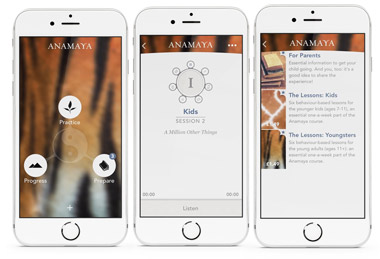Primary Times - the definitive what’s on and where to go family guide of activities and events for children of primary school age. Things to do with your kids during the school holidays including arts and craft activities, music and theatre for children, parties, competitions, days out, and family attractions along with term time drama schools, dance classes, after school clubs and sports activities. Things to do at a place near you!
Advice for how to handle your child’s exam stress
 Exam season is always going to be pressured. It's inevitable. But it does not have to be stressful. Pressure can be stimulating, invigorating — it can bring out the best in you. Stress is never helpful.
Exam season is always going to be pressured. It's inevitable. But it does not have to be stressful. Pressure can be stimulating, invigorating — it can bring out the best in you. Stress is never helpful.
Here's a simple fact: when we are stressed, a part of our brains fires to cause the 'flight or fight' reaction. And, one of the effects is to reduce our cognitive or thinking function, and our memory function. So, stress stops our brains from functioning properly.’
What are the signs of exam stress? Every child will react differently to stress - you may see uncharacteristic withdrawal, outbursts of temper, loss of appetite, or simply heightened emotions. Be aware of anything out of the ordinary. But, when you identify it, avoid confrontation ('I know you're stressed, but ...'), and condescension, ('We all know you're stressed...'). Be understanding: remember, even as an adult you don't like to be told how you feel, even if it is true.
But, don't wait for the signs of stress to emerge — take action in advance. Create a calming environment. Don't make everything about exams, don't shut normal household life down. Have a chat about when your child would like to study, and how; provide guidance by encouraging a study timetable, with times for each subject, and enforced breaks to allow the mind to settle and rest. Talk to them about study -- but also about other things.
It is all about creating the environment — only they can do the study — and a good open and understanding dialogue between the two of you.
Mindfulness Exercises to help: Successful study is never about applying time — it is all about applying the mind. And problems often arise by confusing or merging the two: lots of time is applied to study that is inefficient simply because the mind is tired or even clogged, unreceptive.
Your child's mind needs to be fresh and receptive to study effectively. It is also good to set intention. So, here are some ideas to establish a good calm, receptive state for study:
- Prior to each study session, your child should clear their workspace, but with intent. It's a bit like a Japanese tea ceremony: a slow and deliberate clearing of the workspace, with thought given to each item cleared, with the intention that each item cleared also clears the mind. It is a wonderful calming exercise. Following the clearing, comes the setting out of the materials for the new session.
- After clearing and setting out, the child should sit quietly for between three and five minutes. If there is a mindfulness programme at your child's school, they will be familiar with this. If not, a specialist Mindfulness for School programme is available online. Or use a simple meditation technique: simply sit quietly, eyes shut, spine upright, and make an active effort to follow your breath. Don't think about anything, simply feel your breath coming in and going out — don't fight thoughts, just let them float away, and concentrate on your breath. If you find it hard, count as you breathe. Do this for five minutes before study.
- After sitting, when settling down to commence study, it is really effective and calming to actually make a statement of intention: 'Now I am going to study chapters three and four.’ Much as it may sound foolish, it’s best to say it out loud. It's about calming and ordering the mind: a calm and ordered mind is receptive.
- Your child should take a break regularly. Changing subjects creates a good opportunity: the break should be relaxing, and most effectively could simply be a few minutes sitting again. Falling asleep for a few minutes is good. Changing subjects after the break means, yes, clearing and setting out again.
 It's all very Zen, but the point is to keep the mind clear and receptive.
It's all very Zen, but the point is to keep the mind clear and receptive.
What to do about panic?
Change the subject. Let your child know that there is life beyond the exams. Talk about fun family things, remember funny family anecdotes -- emphasising the family reinforces the notion of support around the child. Laughter is great -- watch a favoured comedy show together for a short while, and watch the mind relax. And become receptive again.
How does the App help?
Anamaya for School is a specialist programme which combines periods of meditation with specific mind training exercises. The exercises target children and young adults specifically, to open up and develop their thinking and emotional reactivity. The combination will help with concentration, understanding, and memory, and will help with exam emotions.
To find out more, visit www.anamaya.co/school
|
|
Tweet |



